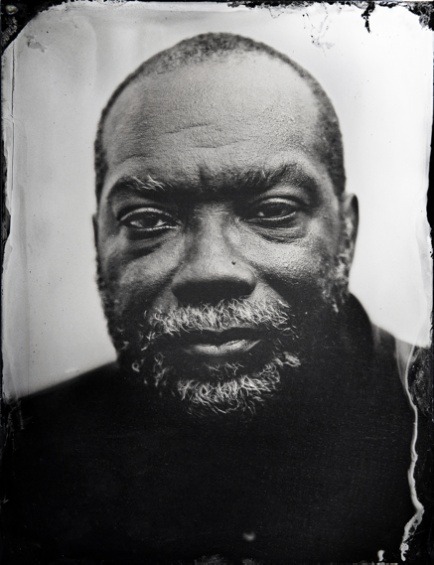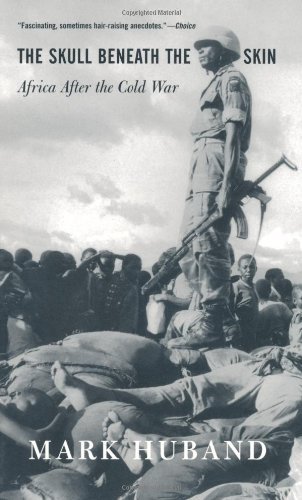Video
vimeo
At 1hour28min, a white man asked Wilderson: “ You seem to say that it’s impossible for me to understand the Black experience because it’s an ontological one. So how can we relate to blackness in a way that doesn’t turn it into identification? ”
The first part of Wilderson’s answer was simply BRILLIANT!
“ I can’t actually tell you how to experience that experience. I’m really not interested in doing coalition work like that. I’m interested in doing theoretical work that helps Black people shit on the inspiration of the entire world. ”
https://vimeo.com/129677829
213 notes
·
View notes
Quote
You'd rather be here than in Africa. The trump card all narrow-minded nativists play. If you put a cupcake to my head, of course, I'd rather be here than any place in Africa, though I hear Johannesburg ain't bad and the surf on the Cape Verdean beaches is incredible. However, I'm not so selfish to believe that my relative happiness, including, but not limited to, twenty-four-hour access to chili burgers, Blu-ray, and Aeron office chairs is worth generations of suffering. I seriously doubt that some slave ship ancestor, in those idle moments between being raped and beaten, was standing knee-deep in their own feces rationalizing that, in the end, the generations of murder, unbearable pain and suffering, mental anguish, and rampant disease will all be worth it because someday my great-great-great-great-grandson will have Wi-Fi, no matter how slow and intermittent the signal is.
Paul Beatty, The Sellout
13 notes
·
View notes
Link
I have been trying to explain this to folks for a minute now...
Perhaps the most important thing we have to remember about the black tradition is that Africa and its diaspora are much older than blackness. Blackness does not come from Africa. Rather, Africa and its diaspora become black at a particular stage in their history. It sounds a little...
621 notes
·
View notes
Photo


In Sciamma’s film there is a constant battle between the director’s desire to fictionalize and fantasize (which gives us the best scenes) and her desire to document, to be realistic and authentic, which trumps the other impulse and gives us the clichéd, rehashed tropes, images and dialogue. The greatest scenes are those where the director stops controlling the way the characters talk, lets the camera roll and observes the actresses improvising, so that the characters come to life as they interact with each other. These girls who are unable to live their girlhood publicly (because men! because society!) take refuge in a hotel room to drink, sing loudly to Rihanna and talk. The most radical move would have been to stay in that hotel room. I would watch a 3-hour movie that was a succession of static shots showing black girls talking shit, drinking, sleeping, and talking again until exhaustion. There is so much to explore, so much to say and imagine. It would be vertiginous and formally daring.
I do believe that only a black woman can direct this film, because it requires a certain empathy and therefore knowledge, which most people don’t have when it comes to telling stories about black women. Empathy demands patience, a listening ear and attentive eye. Though I was really moved by Sciamma’s desire to center the lives of black girls because she had also observed the violent absence of black female characters in French cinema, Girlhood is not enough. - fansylla
Carefree Black Girls, Interrupted
2K notes
·
View notes
Quote
In the consternated deliberations of national security, official and unofficial, from the founding of the republic to the trumpeting of the new world order, the social control and crisis management of the black population has always figured centrally, even or perhaps especially when matters of emancipation or racial equality have by no means enjoyed the focus of debate. Across the sweep of U.S. history, policing the color line has required no credible threat of invasion, no evidence of insurrectionary design, no proven stockpile of illicit chemical agents or radioactive material, no particular breach of domestic or international law, no sensational moral or ethical transgression (though all of these items, real or imagined, have factored in the relevant discourses, public and private). It has only required the presence — within the polity, economy, culture, and society — of a so-called problem people, dwelling as the absence of human presence.
Jared Sexton, “Race, Nation, and Empire in a Blackened World.” Radical History Review 95 (Spring 2006): 251 (via so-treu)
218 notes
·
View notes
Photo

Fred Moten on Chris Ofili tomorrow night is SOLD OUT. You can catch it on livestream at 7 PM: http://bit.ly/1zcgE0v
27 notes
·
View notes
Quote
It is important to stress from the outset, however, that the gendering of imperialism took very different forms in different parts of the world. India, for one, was seldom imaged as a virgin land, while the iconography of the harem was not part of Southern African colonial erotics. North African, Middle Eastern and Asian women were, all too often, trammeled by the iconography of the veil, while African women were subjected to the civilizing mission of cotton and soap. In other words, Arab women were to be “civilized” by being undressed (unveiled) while sub-Saharan women were to be civilized by being dressed (in clean, white, British cotton). These sumptuary distinctions were symptomatic of critical differences in the legislative, economic and political ways in which imperial commodity racism was imposed on different parts of the world.
Anne McClintock, Imperial Leather: Race, Gender and Sexuality in the Colonial Contest (via bizindamowin)
1K notes
·
View notes
Quote
The structuring difference between settler colonization and enslavement is to be found precisely in the latter’s denial of ‘knowledge of who their nations are’ – that is, deracination. On this count, the loss of indigeneity for native peoples can be named and its recovery pursued, and that pursuit can (and must) become central to political mobilization. The loss of indigeneity for black peoples can be acknowledged only abstractly and its recovery is lost to history, and so something else must (and can) become central to political mobilization. Not the dialectics of loss and recovery but rather the loss of the dialectics of loss and recovery as such, a politics with no (final) recourse to foundations of any sort, a politics forged from critical resources immanent to the situation, resources from anywhere and anyone, which is to say from nowhere and no one in particular.
Jared Sexton, "The Vel of Slavery: Tracking the Figure of the Unsovereign"
#race and empire#settler colonialism#native studies#indigeneity#jared sexton#Decolonization#Black radicalism#afropessimism
16 notes
·
View notes
Photo

2 notes
·
View notes
Video
youtube
Saidiya Hartman on Human Rights and the Humanities
87 notes
·
View notes
Photo

2 notes
·
View notes
Photo

0 notes
Photo

From Douglass to Duvalier: U.S. African Americans, Haiti, and Pan Americanism, 1870-1964 by Millery Polyné. Gainesville: University Press of Florida, 2010.
"Millery Polyné charts an ambitious scholarly path in this work, and explores it well. His title invokes memories of the late scholar David Nicholls’ work in From Dessalines to Duvalier: Race, Colour, and National Independence (1979 and subsequent editions). Nicholls’ last edition (1996) began with the fall of former President Jean-Claude “Baby Doc” Duvalier in 1986 and Polyné’s begins with the departure of President Jean-Bertrand Aristide in 2004. Nicholls acknowledged that Haiti’s revolution became a [End Page 425] symbol of triumph to other Caribbean nations, but he focused on providing an insular look at the island. Conversely, Polyné uses this very historical memory of Haiti as a sign of black freedom and shifts the study of the nation outwards to the larger Americas. He demonstrates convincingly how this historical memory guided transnational interactions between elite Haitians and U.S. African Americans from the late nineteenth through the present century (p. 7). Polyné’s well-researched and critical examination of these exchanges has produced a text that widens our understanding of the Americas for the discipline of American Studies and paves the way for new and stimulating discussions in the fields of history and African American and Haitian studies.” — Yveline Alexis
78 notes
·
View notes
Quote
But the cultural history of slavery in early America goes much deeper than characterizations of identity along a continuum from African to American (or, for that matter, assertions that identities are in fact hybrid) can capture. Cultural practices in American slave societies were deeply entangled. People of diverse origins readily borrowed, stole, and mimicked one another's behavior. For this reason, it can be misleading to attribute cultural traits to distinct 'ethnic' groups, traced back to their places of origin, or to describe cultural change in terms of linear progress toward settled New World patterns. This kind of analysis also leaves the mistaken impression that people's sole aim was to achieve a distinct cultural identity.
Vincent Brown, The Reaper's Garden: Death and Power in the World of Atlantic Slavery
3 notes
·
View notes
Quote
Barack Obama is the president of the United States of America. More specifically, Barack Obama is the president of a congenitally racist country, erected upon the plunder of life, liberty, labor, and land. This plunder has not been exclusive to black people. But black people, the community to which both Michael Brown and Barack Obama belong, have the distinct fortune of having survived in significant numbers. For a creedal country like America, this poses a problem—in nearly every major American city one can find a population of people whose very existence, whose very history, whose very traditions, are an assault upon this country's nationalist instincts. Black people are the chastener of their own country. Their experience says to America, "You wear the mask."
Ta-Nehisi Coates—Barack Obama, Ferguson and the Evidence of Things Unsaid
10 notes
·
View notes
Link
Oldenziel, Ruth. "Islands: U.S. as Networked Empire." In Entangled Geographies. Empire and Technopolitics in the Global Cold War, edited by Gabrielle Hecht, 13-42. Cambridge, MA: MIT Press, 2011.
0 notes
